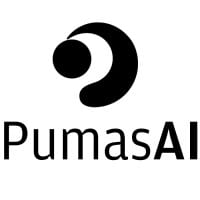Today, a brief rundown of news from Metagenomi and Ovid Therapeutics, as well as updates from Cogent Biosciences, Galecto, AnaptysBio and Lyell Immunopharma that you may have missed.
Metagenomi will lay off a quarter of its staff and trim early research work in a restructuring that will extend the company’s financial runway into the fourth quarter of 2027. Going forward, Metagenomi will focus on its “later-stage” preclinical pipeline, including a gene-editing program for hemophilia A and cardiometabolic prospects involved in a collaboration with Ionis Pharmaceuticals. Company president and Chief Operating Officer Jian Irish has been named CEO as part of the strategic shift, with former leader Brian Thomas moving to the board of directors, Metagenomi said Tuesday. Metagenomi has lost about 80% of its value since going public in February 2024.
Jeremy Levin, the longtime leader and co-founder of brain drug developer Ovid Therapeutics, will transition to board chair at the start of next year. Ovid announced the move Wednesday as part of a succession plan that will anoint President and Chief Operating Officer Meg Alexander as CEO effective Jan. 1. Levin has led Ovid since forming the company in 2014. The company has since hit multiple research setbacks, but recently reported encouraging early-stage data for a potential seizure therapy.
Shares of Cogent Biosciences more than doubled after Phase 3 study results showed a regimen involving its experimental drug bezuclastinib significantly slowed disease progression in patients with a type of advanced stomach cancer. According to Cogent, a combination of bezuclastinib and the widely used medication Sutent held gastrointestinal stromal tumors in check for a median of 16.5 months, versus nine months for study volunteers receiving Sutent alone. The benefits observed were “unprecedented” and set “a new standard of care” in the second-line setting, wrote Leerink Partners analyst Andrew Berens. Cogent intends to file for approval next year.
Galecto acquired startup Damora Therapeutics and concurrently raised $285 million in a private stock sale, the company said Monday. The deal hands Galecto a pipeline of antibody drugs for blood cancers, like myelofibrosis, that are specifically driven by mutated forms of the protein calreticulin. Damora is the sixth company created by antibody specialist Paragon Therapeutics, which has previously spun out biotechs like Apogee Therapeutics, Oruka Therapeutics and Crescent Biopharma that are now publicly traded. Galecto shares skyrocketed nearly 250% on the news.
AnaptysBio shares fell by double digit after its drug prospect rosnilimab failed a Phase 2 trial in ulcerative colitis. According to the company, rosnilimab wasn't effective enough at curbing disease symptoms despite meaningfully lowering levels of disease-causing T cells, as it's designed to do. While "disappointing," the outcome wasn't necessarily a surprise given the "relatively less validated role" of the drug's mechanism against ulcerative colitis, wrote Leerink Partners' David Risinger. Rosnilimab is also being developed in rheumatoid arthritis. AnaptysBio said it will provide an update on its development strategy there next year.
Lyell Immunopharma has licensed an experimental cancer cell therapy from China and Maryland-based Innovative Cellular Therapeutics. The deal, announced Monday, revolves around a therapy ICT has been developing for metastatic colon cancer and other tumors expressing a protein called guanylyl cyclase-C. That treatment, to be known going forward as LYL273, is currently in early-stage testing. Lyell is paying ICT $40 million in cash and 1.9 million shares of its common stock for most rights to the LYL273. It could add another $820 million and 1.85 million shares to the deal if certain clinical and regulatory targets are met.
















